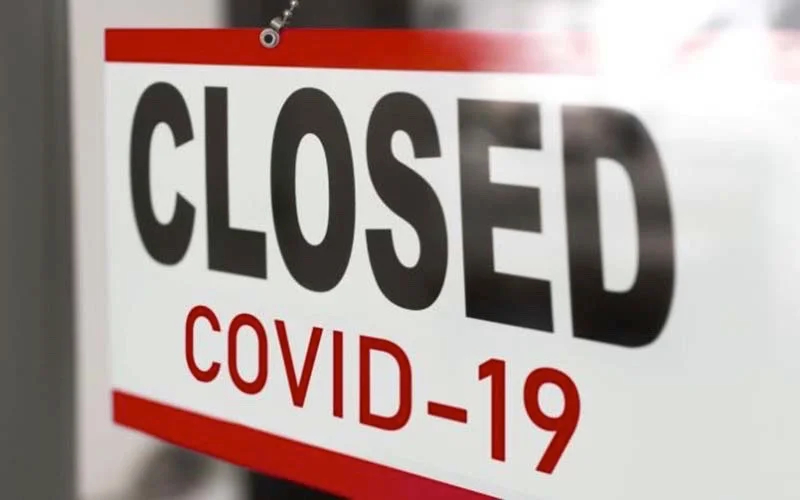Top 6 Government Health Insurance Programs
As healthcare costs in the US continue to soar, it's essential to have insurance that fits your unique needs. The US government offers several health insurance programs, depending on your eligibility.
The first three programs, Medicare, Medicaid, and the State Children's Health Insurance Program (SCHIP), provide assistance to individuals who have high healthcare needs and low economic status. The other three, TRICARE, VHA, and IHS, are designed to serve specific groups, including military personnel, veterans, and Native Americans.
So, to help ensure you’re protecting both your health and your wallet, here are the most common government health insurance plans that you need to be aware of:
1. Medicare
Medicare is a federal health insurance program that provides coverage to people who are 65 and older, as well as people with certain disabilities or end-stage diseases.
Medicare is composed of four working parts:
- Part A (hospital insurance)
- Part B (medical insurance)
- Part C (Medicare Advantage)
- Part D (prescription drug coverage)
- It provides affordable and accessible health coverage and prescription drugs for qualified people.
- Medicare covers many younger Americans with disabilities.
- It costs very little monthly, with many Medicare enrollees qualifying for premium-free Part A. Part B requires a small monthly fee out of pocket.
- Medicare doesn’t cover all healthcare costs, and individuals may need to pay co-pays, deductibles, and premiums.
- There can be a lot of out-of-pocket costs with no cap on how much you can spend in a year.
- Medicare limits the days it will pay for you in the hospital.
2. Medicaid
Medicaid is a joint federal and state program that provides health insurance to people with low incomes and limited resources. Eligibility varies by state. Generally, Medicaid is for low-income children, pregnant women, adults with dependent children, and individuals with disabilities.
Pros:- Medicaid provides healthcare coverage to people who wouldn’t otherwise be able to afford it.
- Most Medicaid plans don’t have premiums or deductibles, so there’s no out-of-pocket cost.
- Some healthcare providers may not accept Medicaid coverage, making it more difficult to find specialists or specialized care.
- Some states may have restrictive eligibility requirements, which creates a gap in coverage for some people.
3. SCHIP
The State Children’s Health Insurance Program (SCHIP) is designed to provide health insurance coverage to children whose families cannot afford private insurance and do not qualify for Medicaid.
Pros:- SCHIP provides healthcare coverage to children who wouldn’t otherwise be able to afford it.
- It has no or low out-of-pocket costs.
- SCHIP’s coverage may not be as comprehensive as private insurance plans.
- It can be challenging to find doctors or healthcare providerswho accept SCHIP.
4. TRICARE
TRICARE is a health insurance program for military personnel, retirees, and their families. This program serves the following people:
- Uniformed Service members and their families
- National Guard/Reserve members and their families
- Survivors
- Former spouses
- Medal of Honor recipients and their families
- Others registered in the Defense Enrollment Eligibility Reporting System (DEERS).
- Flexibility - You can receive healthcare services from TRICARE-approved providers both in the US and overseas.
- Some TRICARE plans offer coverage for emergency services and urgent care while you're traveling overseas.
- Some TRICARE programs may have a more limited network of healthcare providers than other health insurance plans.
- Certain medical services or treatments may not be covered.
- Some TRICARE plans require co-pays and deductibles, which can still add up and create a financial strain for some families.
- Some beneficiaries have reported experiencing difficulty navigating the system or getting timely responses from customer support representatives.
5. VHA
With 171 medical centers nationwide, the Veterans Health Administration (VHA) offers the largest integrated healthcare system in the US. The VHA provides health care services to veterans of the U.S. Armed Forces. These services include:
- Primary care
- Mental healthcare
- Pharmacy
- Social work
- Women's health
- Disease prevention and health promotion
- 24-hour emergency care services.
To be eligible for VHA healthcare benefits, you must be a veteran who served in the active military, naval, or air service and did not receive a dishonorable discharge.
Pros:- VHA generally provides comprehensive healthcare services including primary care, mental health care, and prescription medications.
- There are no out-of-pocket costs for veterans eligible for VHA services.
- Some patients have experienced long waits for VHA healthcare services.
- Some veterans have reported difficulty accessing VHA services.
- There may be limitations on the health care providers you can see and the locations you can receive care.
6. IHS
IHS, or Indian Health Service, is the federal agency that provides healthcare services to American Indians and Alaska Natives. The special relationship between the government and Indian tribes led to establishing the IHS, which is now the primary healthcare provider and health advocate for these communities.
Pros:- IHS provides comprehensive and culturally sensitive healthcare services to American Indians and Alaska Natives, which would otherwise be difficult to access.
- Their services are often provided at low or no cost.
- IHS clinics and hospitals are often located within or near Native American communities, making commuting convenient for patients.
- IHS often incorporates traditional healing practices with Western healthcare practices, helping patients benefit from modern and traditional healthcare options.
- IHS often has limited resources and funding, resulting in staff shortages, long wait times, and limited medical equipment and supplies.
- IHS may not cover all healthcare services.
- Due to geographic barriers and limited funds, IHS may not always have access to specialists or physicians with specialized training.
Final Note:
When navigating the world of health insurance, it’s crucial to have coverage that meets your healthcare needs at an affordable cost. By taking advantage of these programs, you can access the necessary healthcare services without breaking the bank. Remember to research, compare plans, and determine your eligibility to ensure you make the best decision for your healthcare coverage.




